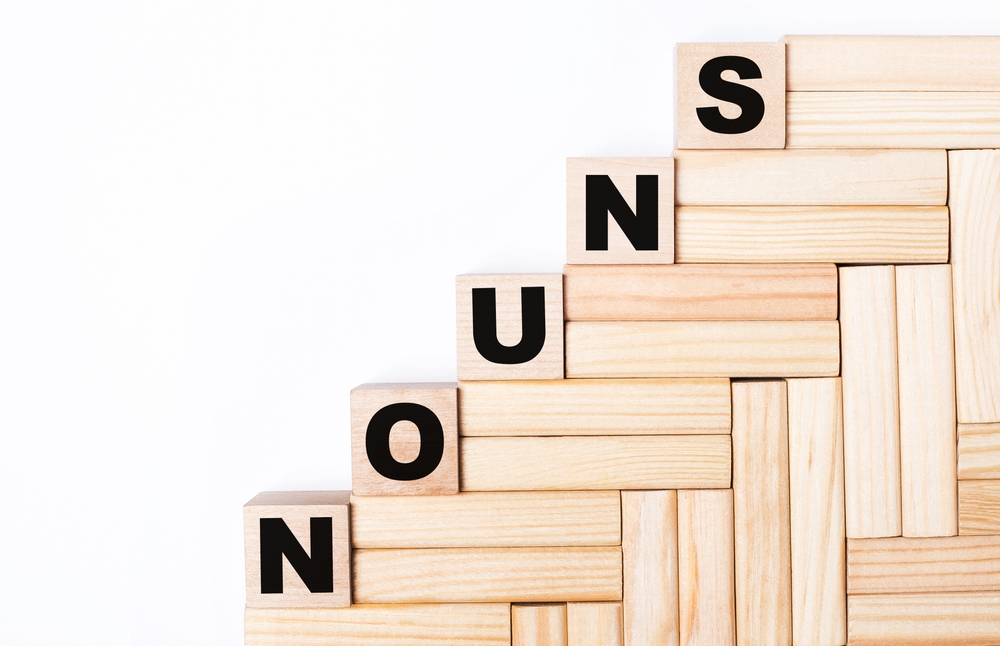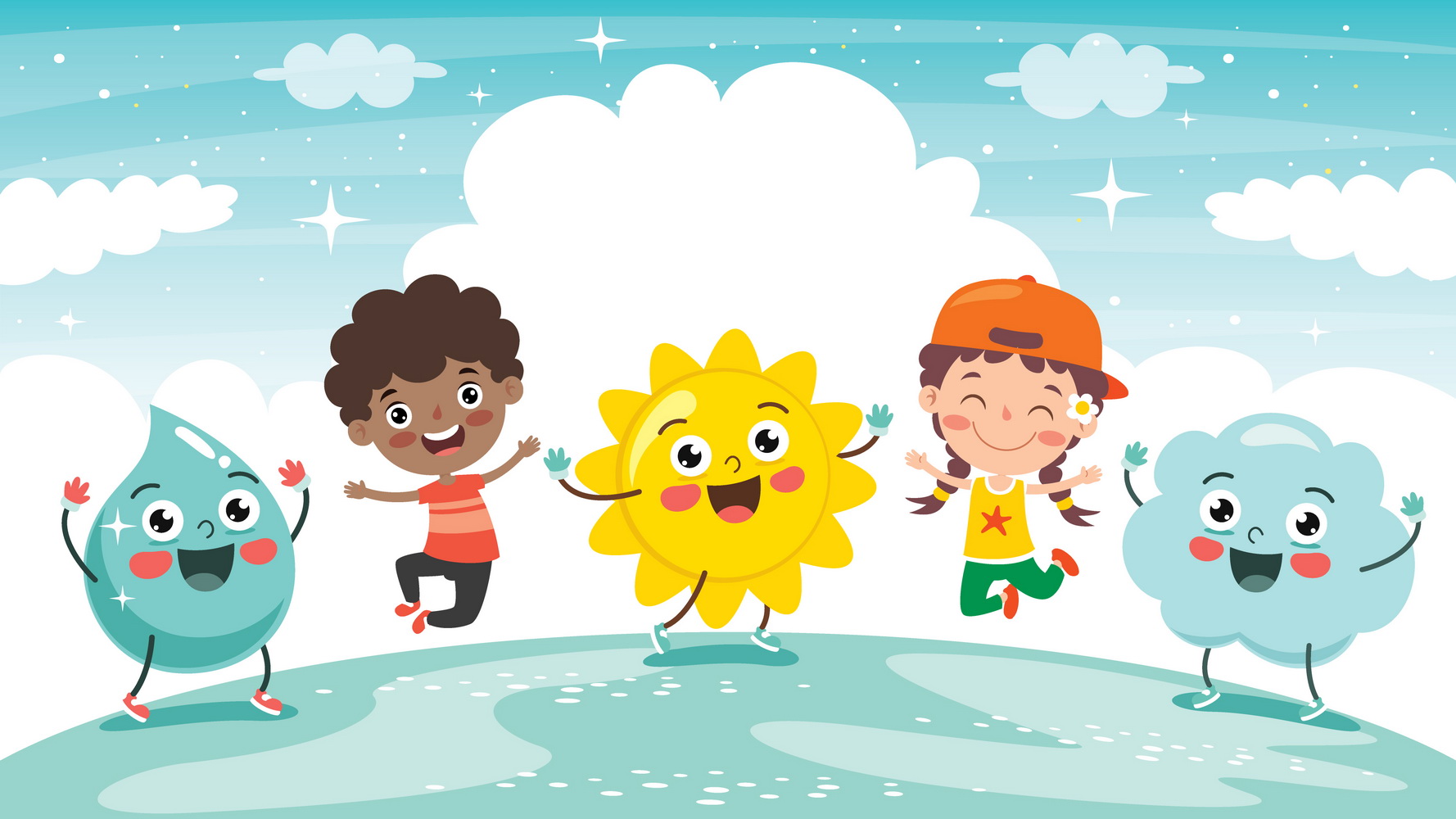Building Vocabulary Worksheets Activities With Answers for Ages 5-9
14 filtered results
-
From - To
Enhance your child's language skills with our engaging Building Vocabulary Worksheets tailored for ages 5-9! These interactive activities make learning fun and effective, promoting vocabulary development through puzzles, matching games, and fill-in-the-blank exercises. Each worksheet is designed to challenge young minds while providing an answer key to aid parents and educators in tracking progress. Explore a variety of themes, from everyday words to more advanced vocabulary, ensuring a well-rounded language foundation. Perfect for at-home learning or classroom use, our resources foster creativity, comprehension, and confidence in young learners. Visit now to unlock the power of words!
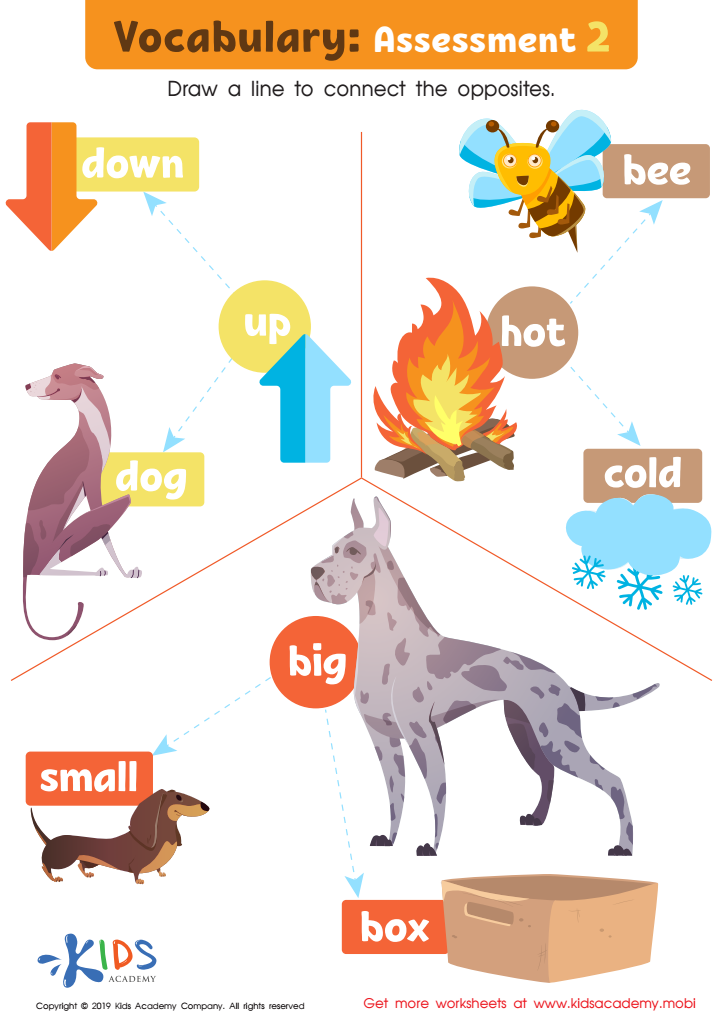

Vocabulary: Assessment 2 Worksheet
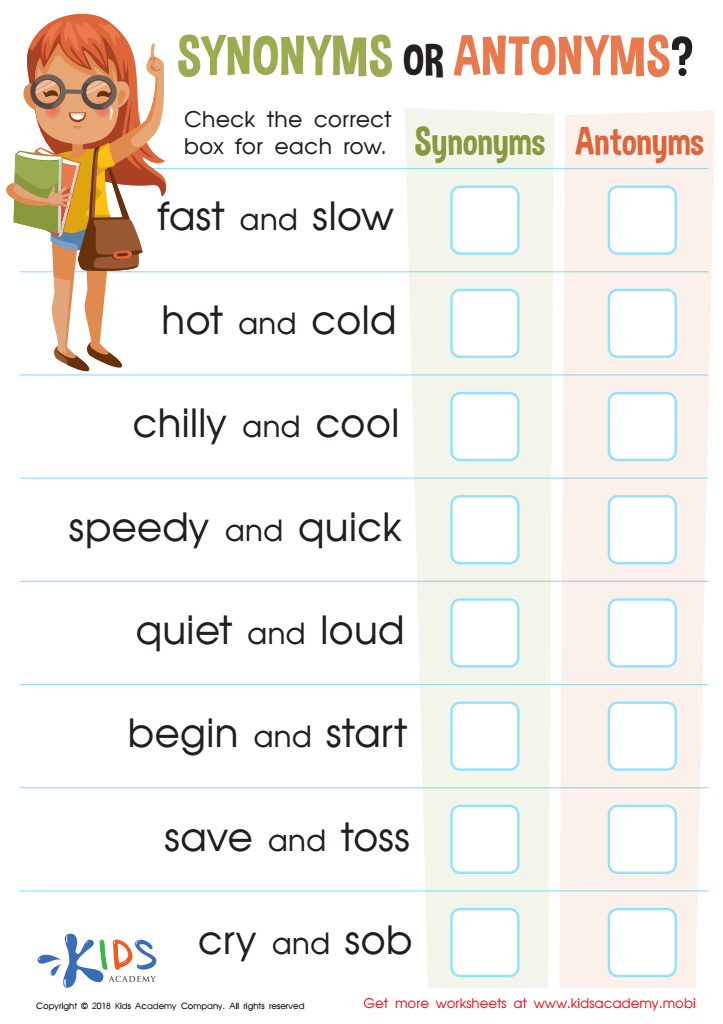

Synonyms or Antonyms: Assessment Worksheet
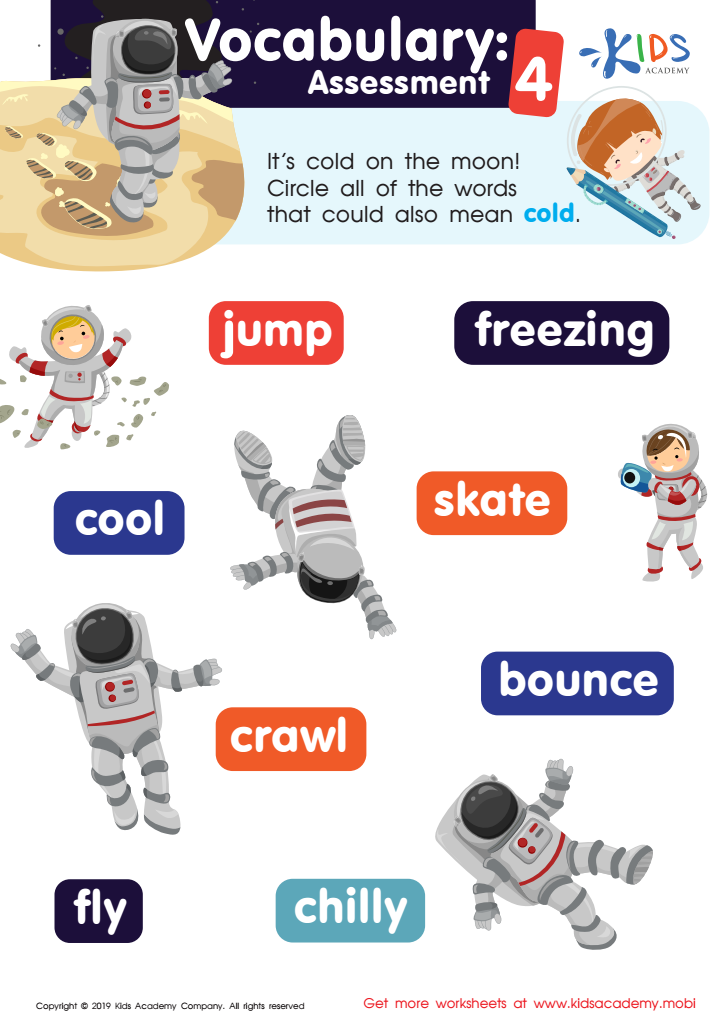

Vocabulary: Assessment 4 Worksheet
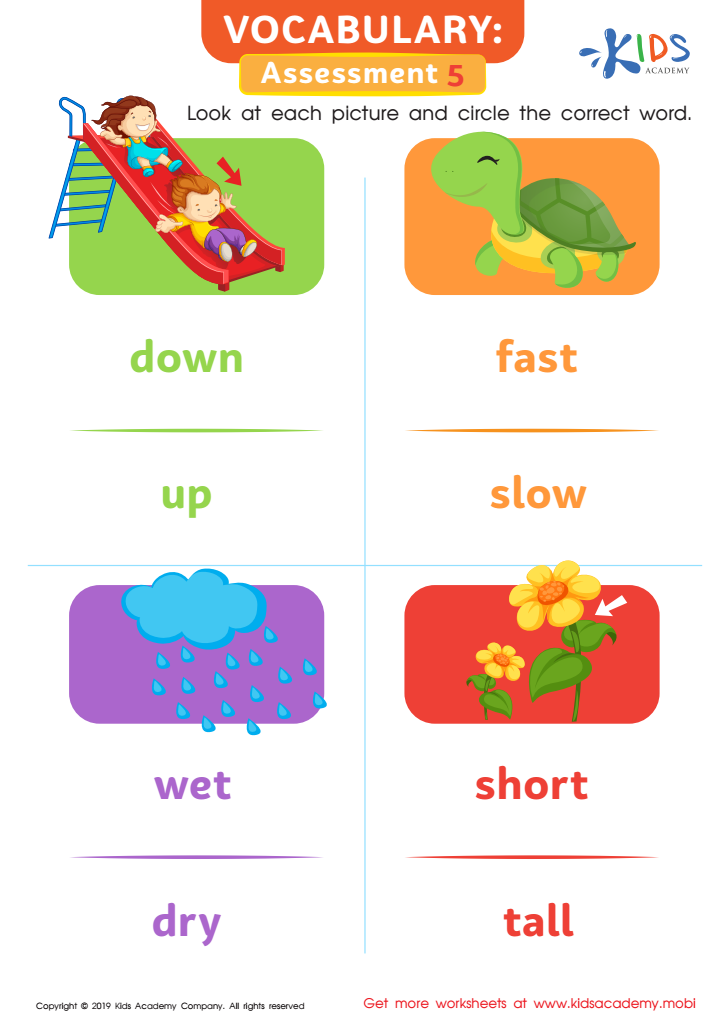

Vocabulary: Assessment 5 Worksheet
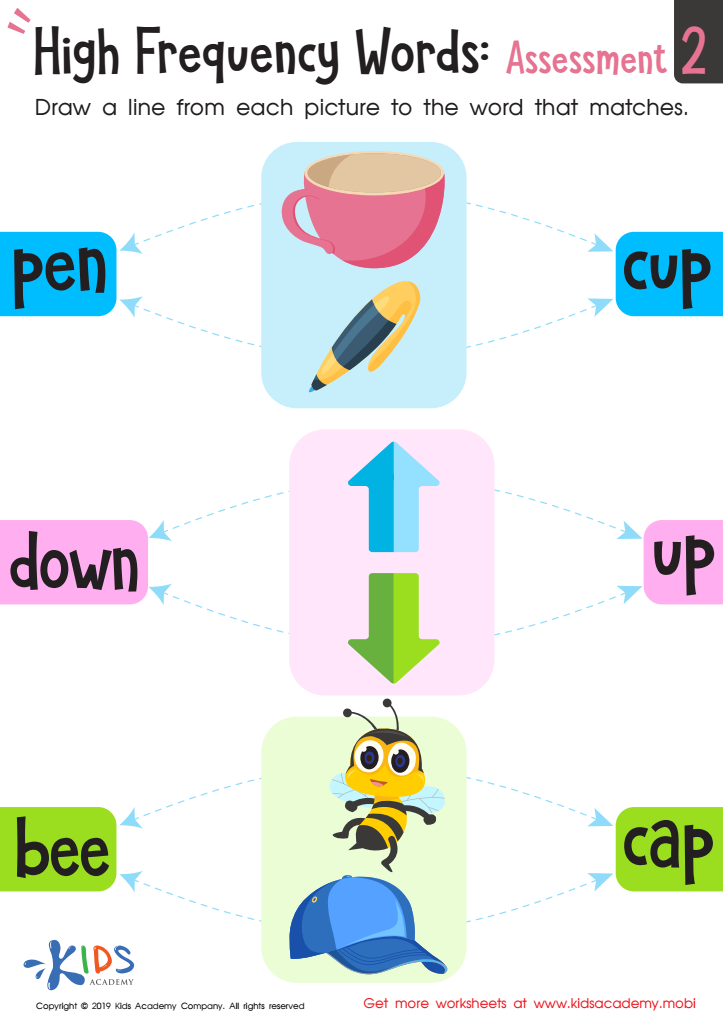

High Frequency Words: Assessment 2 Worksheet
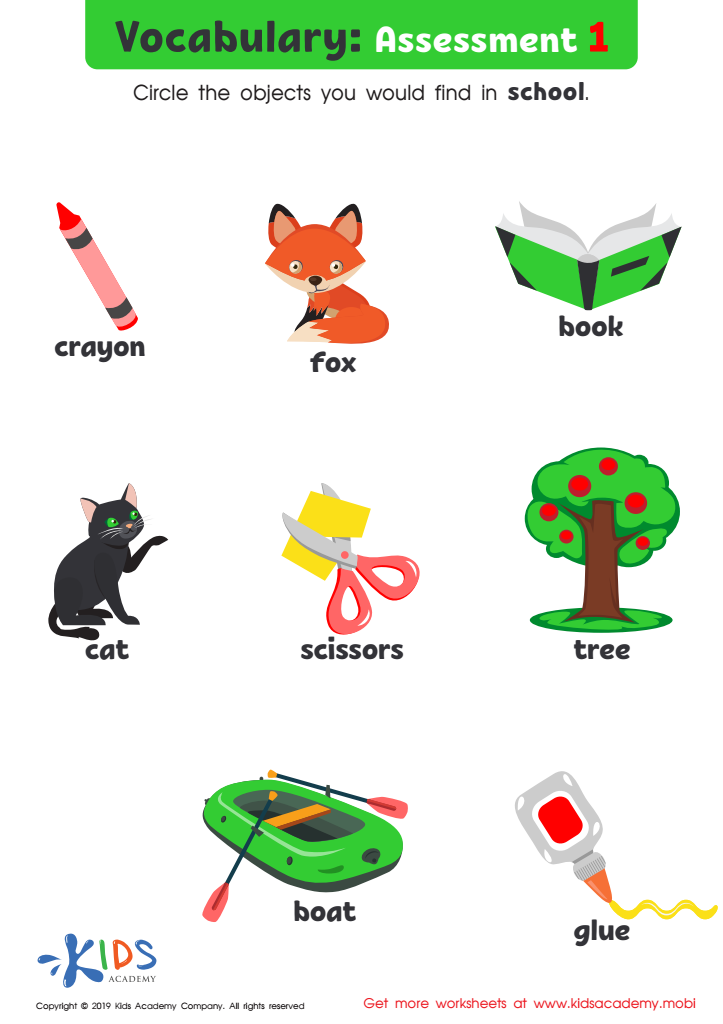

Vocabulary: Assessment 1 Worksheet
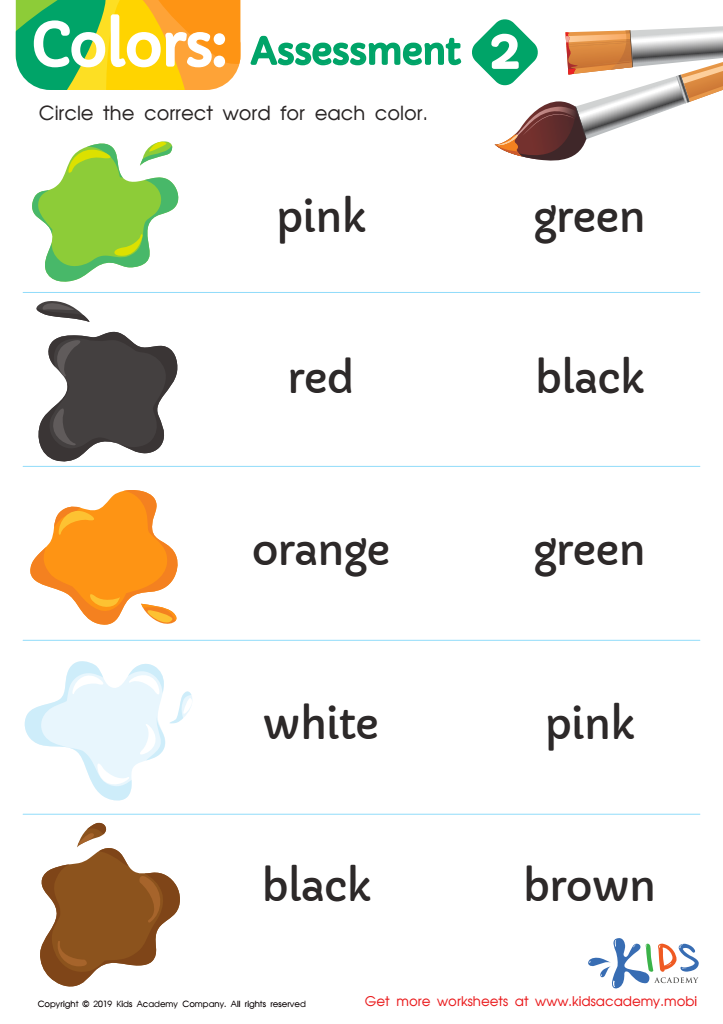

Colors: Assessment 2 Worksheet
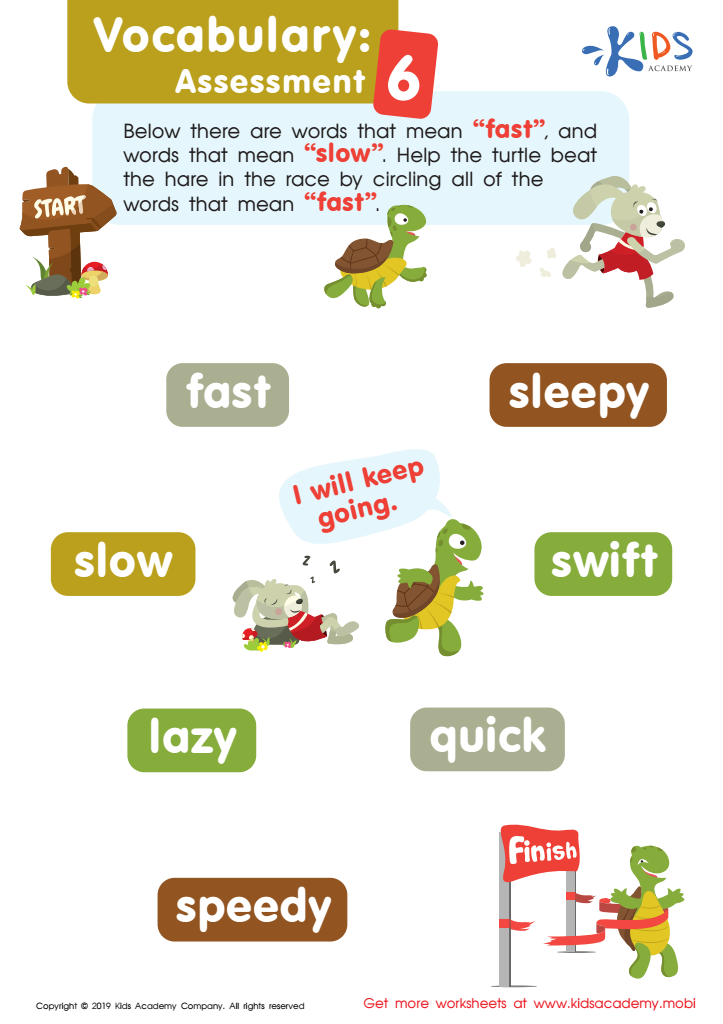

Vocabulary: Assessment 6 Worksheet
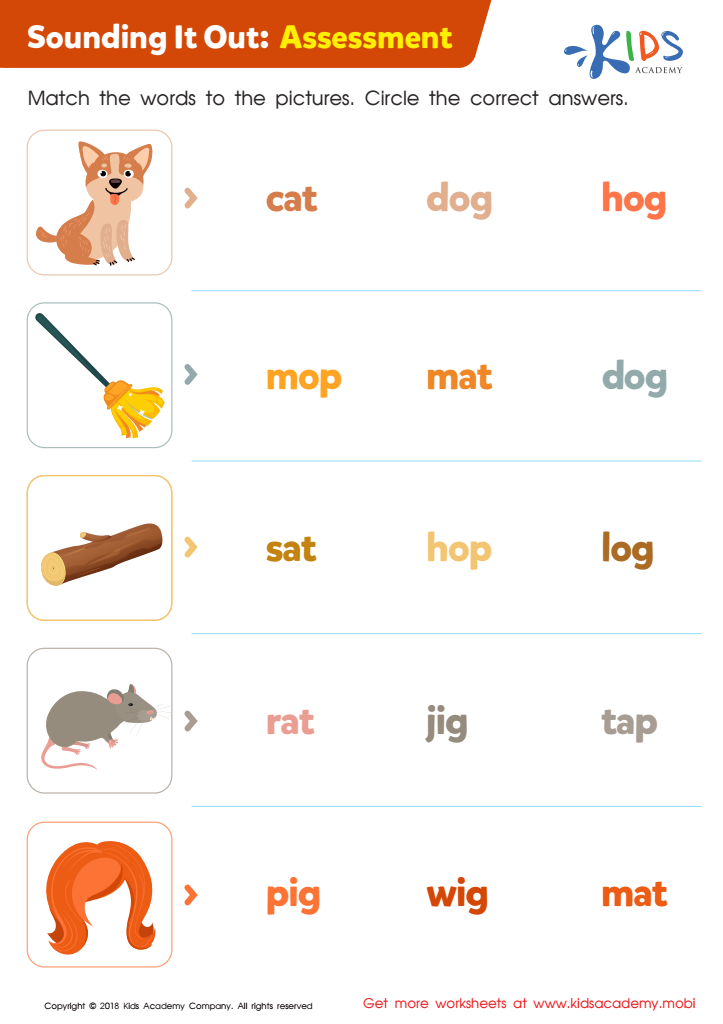

Sounding it Out: Assessment Worksheet
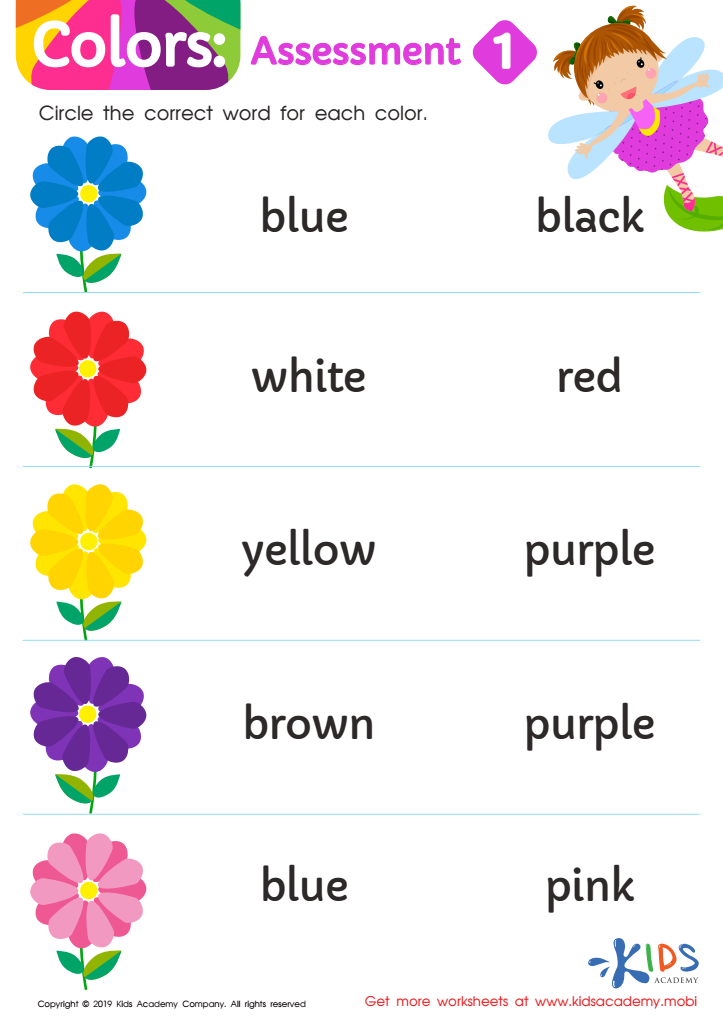

Colors: Assessment 1 Worksheet
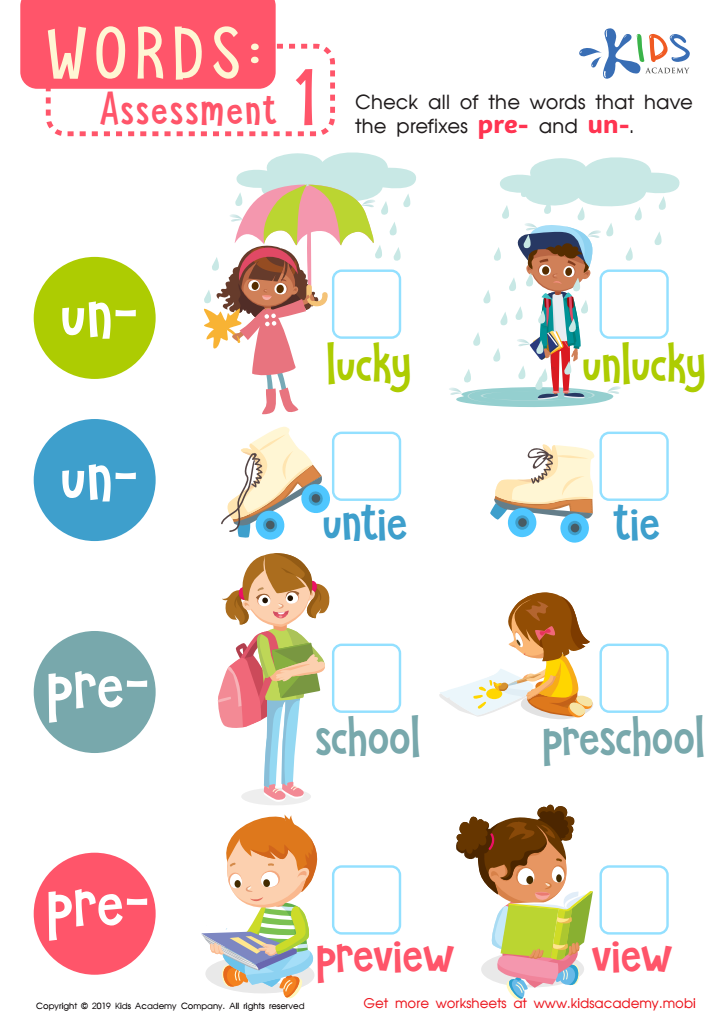

Words: Assessment 1 Worksheet
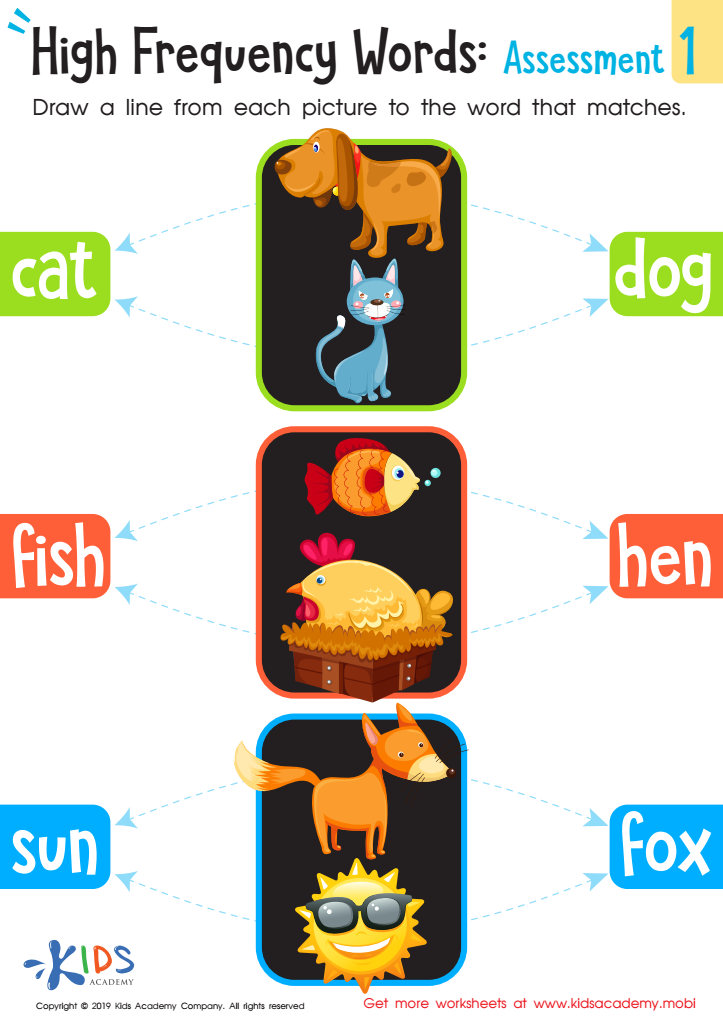

High Frequency Words: Assessment 1 Worksheet
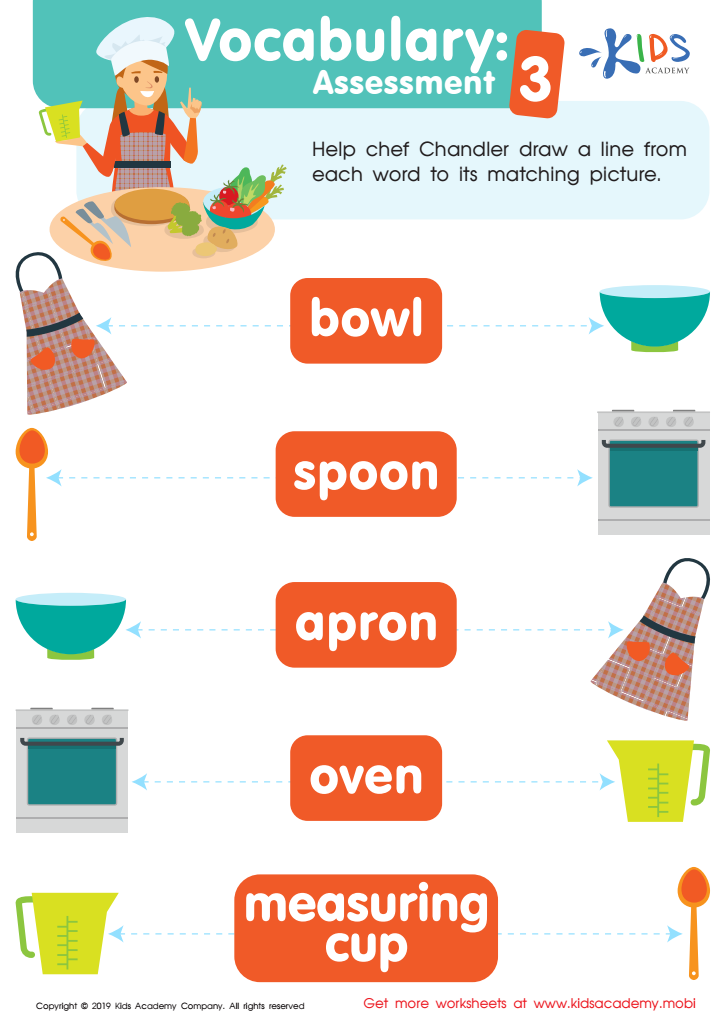

Vocabulary: Assessment 3 Worksheet
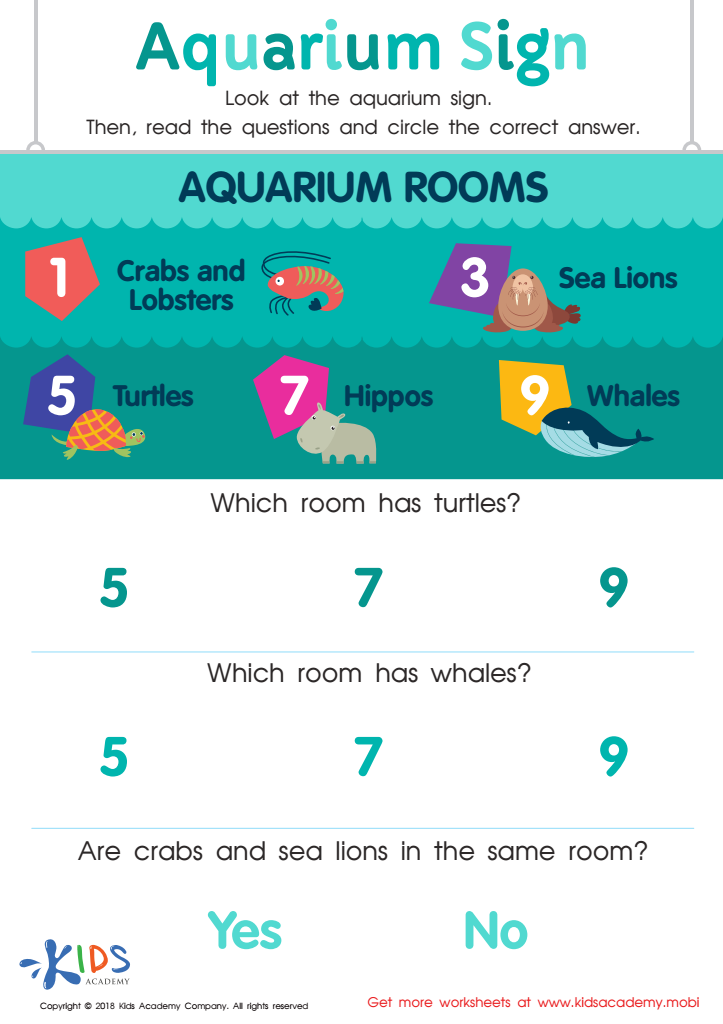

Assessment: Aquarium Sign Worksheet
Building vocabulary activities for children aged 5-9 are crucial for their linguistic and cognitive development. During these formative years, children are particularly receptive to learning new words, which enhances their ability to express themselves, understand their surroundings, and engage with others. Vocabulary is the foundation of literacy; strong vocabulary skills correlate with better reading comprehension and overall academic success.
For parents and teachers, investing time in vocabulary-building activities encourages richer conversations and critical thinking. Activities can include word games, storytelling sessions, and themed discussions that often make learning enjoyable and interactive. This engagement not only fosters a love for language but also promotes social skills through collaborative play.
Moreover, enhancing vocabulary supports emotional and social development. As children learn new words, they can articulate their feelings and thoughts more effectively, leading to improved relationships with peers and adults. This can reduce frustration and behavioral challenges that arise from miscommunication.
Providing structured vocabulary activities also helps bridge various learning styles. Children gain exposure to words in auditory, visual, and kinesthetic ways, ensuring that all learners have access. Ultimately, prioritizing vocabulary development lays a solid foundation for lifelong learning and communication skills.
 Assign to My Students
Assign to My Students









